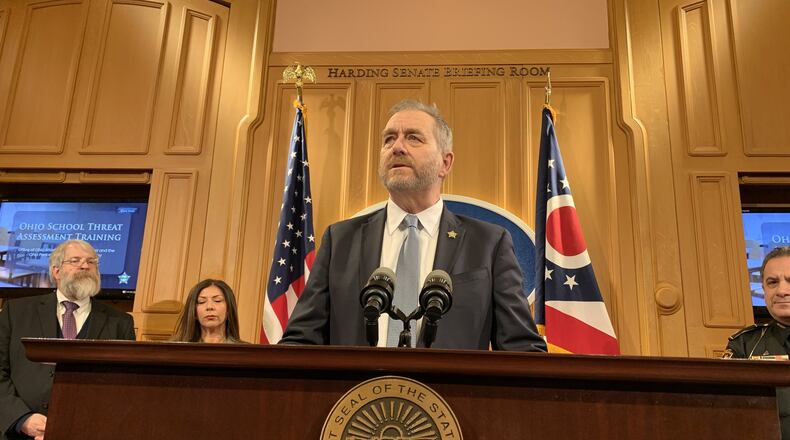RELATED: Coronavirus: Ohio National Guard activated to help with food distribution
Ohio Attorney General Dave Yost has advised local governments to consider holding meetings electronically while rules blocking public gatherings are in place as part of the COVID-19 response.
“Under this very limited fact pattern, there may be a basis for local public bodies to use electronic means to meet and comply with the law,” Yost said in a letter earlier this week to local officials.
An expert raised questions about varying from long-held Ohio law requiring officials to be “in person” at meetings.
“Local officials can limit the size of an audience and make arrangements for overflow. And probably with a lot less trouble than trying to arrange electronic means of leaving the public out of the loop,” said Tim Smith, a professor emeritus at Kent State University and a lawyer who specialized in media and public records law.
MORE: Warren County commissioners vote not to declare COVID-19 emergency
The Warren County Board of Commissioners were briefed on the issue Tuesday, a week before a meeting about the redevelopment of the King’s Domain property along the Little Miami River was scheduled for a decision moving the project forward.
If the meeting was delayed, “there could be some push back, there could be some little issues,” said Assistant Warren County Prosecutor Bruce McGary.
RELATED: Coronavirus Complete Coverage
The commissioners approved a resolution prohibiting gatherings of 50 or more people in the county administration building in response state COVID-19 orders and discussed other steps in response to the open meetings dilemma.
McGary said Yost’s guidance “defies all legal precedent prior to this” and suggested a law change might be the solution.
The Dayton Daily News reported earlier this week that some local governments, such as Huber Heights and Dayton Public Schools, have moved ahead with holding meetings that are broadcasted or live streamed, but closed to public attendance.
An exception to Ohio law’s already allows for meetings at alternate sites in times of emergency.
“Even in an emergency, however, there is no exemption to the ‘in person’ meeting requirement of R.C. 121.22(C), and the provision does not permit the public body to meet by teleconference,” according to the Ohio Sunshine Law Manual distributed by the Attorney General’s Office.
About the Author

